We had just a bit of time for a quick stroll around the block and down the waterfront, and then
caught the 300 'Cornwall Explorer' bus which runs along the coast. It was another double-decker and like our
first coast bus experience, rather harrowing as it zipped down narrow streets
and swayed over steep hills.
Our first stop was Porthcurno, now a tiny quiet beach tucked between high headlands.
Once, however, it was the nerve center of the British Empire, as the place where numerous telegraph cables came ashore. There is a marvelous small museum there, with fine exhibits illustrating the lives of telegraphers who served the Empire all over the world, and tracing the technology right up to the present (much of the world's communications traffic still travels by cable-now fiberoptic- and some of those cables still come ashore at Porthcurno). And deep chambers cut into the cliff house an astonishing collection of telegraph equipment, much of it in working order to demonstrate how messages in Morse code were once relayed all over the world.
Our first stop was Porthcurno, now a tiny quiet beach tucked between high headlands.
Once, however, it was the nerve center of the British Empire, as the place where numerous telegraph cables came ashore. There is a marvelous small museum there, with fine exhibits illustrating the lives of telegraphers who served the Empire all over the world, and tracing the technology right up to the present (much of the world's communications traffic still travels by cable-now fiberoptic- and some of those cables still come ashore at Porthcurno). And deep chambers cut into the cliff house an astonishing collection of telegraph equipment, much of it in working order to demonstrate how messages in Morse code were once relayed all over the world.
We walked up along the headland to see the monument to Guiglielmo Marconi, who
did pioneering work in long distance radio transmission. And we admired the fantastic coastal views.
From there we took another bus out to Lands End, the furthest tip of
Cornwall. We'd heard it described as
horribly commercialized…and it's true there were a few shops and so forth. But the Cornish have a long way to go before
they plumb the depths of tackiness achieved by American tourist areas.
Then it was back on the 300 bus again, this time to Geevor Tin Mine, which
was one of the last operating tin mines in Cornwall, and is now a World Heritage
Site. The museum was nearly empty when
we were there, and it had an eerie feel.
Except for a few placards and railings, the workings were clearly an
industrial site. The landscape around
was barren, and you could see the ocean.
Looking at the maps of the workings, some of the mine tunnels extended
as much as a mile out to sea under the water.
I'm not claustrophobic, but the idea of being in a mine underwater gave me the creeps. There was a short tour in one of the
shallower shafts, and all the guides were miners who had worked there before
the mine closed. Although they were
candid about how it was hard dirty thankless work, there was a hint of
wistfulness there too- and a not-quite-dead hope that someday mining might
return to the area.
 |
| Geevor Tin Mine |
We had to leave before we'd seen quite everything, as the bus schedule
waited for no person.
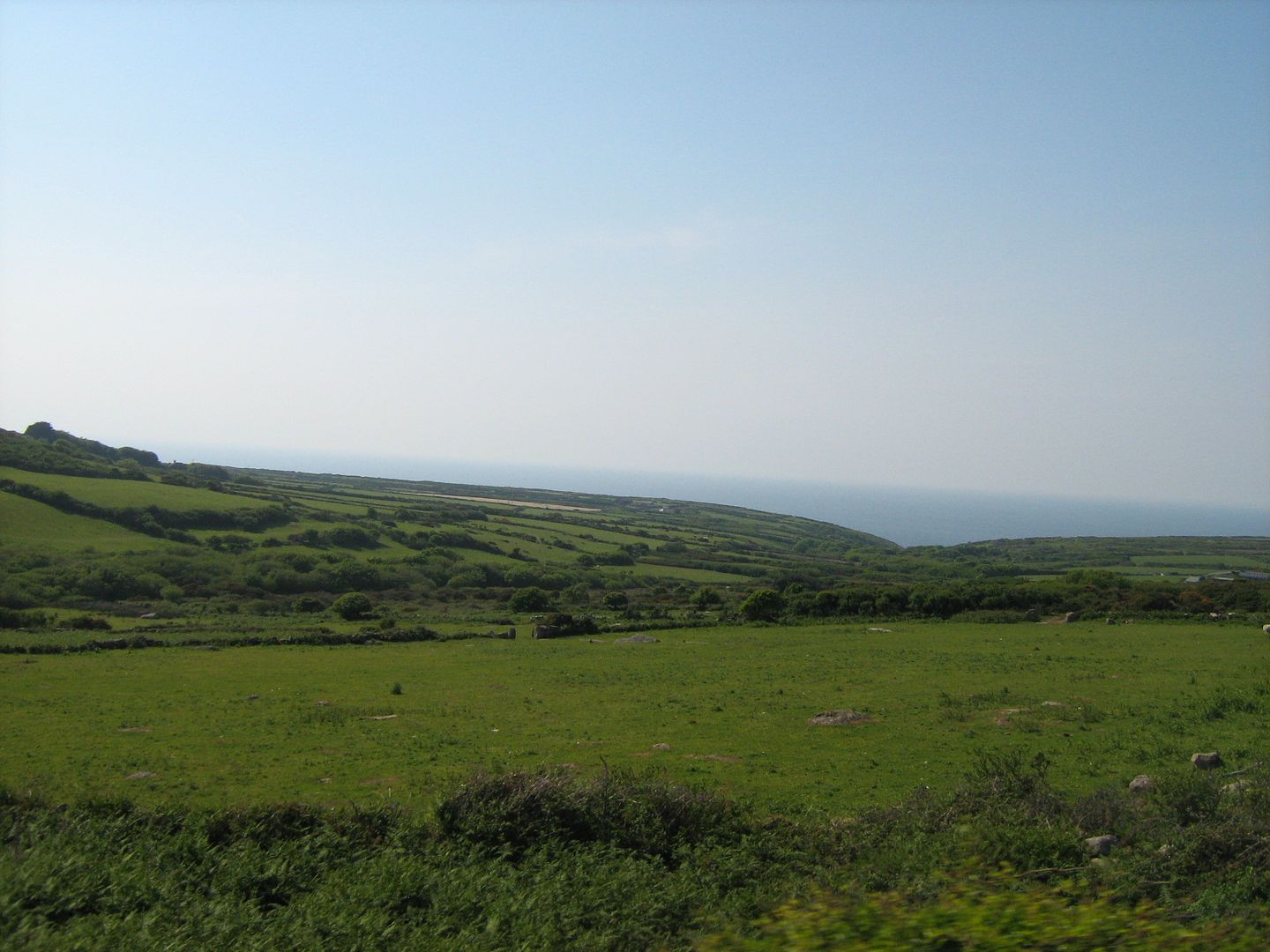 |
| View from the bus |
We finished our tour around the southern tip of Cornwall in St. Ives, which
turned out to be one of our favorite towns of the trip. Long an area favored by
artists, it was easy to see why, as the town was very picturesque, and the
harbourfront lively and filled with restaurants.
We had fish and chips at one place, and then walked along window shopping and admiring the scenery. We stopped for some clotted cream fudge (a local delicacy) which we enjoyed enormously. And then we took yet another bus back to Penzance.
We had fish and chips at one place, and then walked along window shopping and admiring the scenery. We stopped for some clotted cream fudge (a local delicacy) which we enjoyed enormously. And then we took yet another bus back to Penzance.
We had some time before our train, so we walked out along the water to see
St. Michael's Mount- one of the places that would have been nice to see but
just didn't fit in our schedule. But the
evening light of the water was fabulous and we enjoyed the view as we walked
out and back.
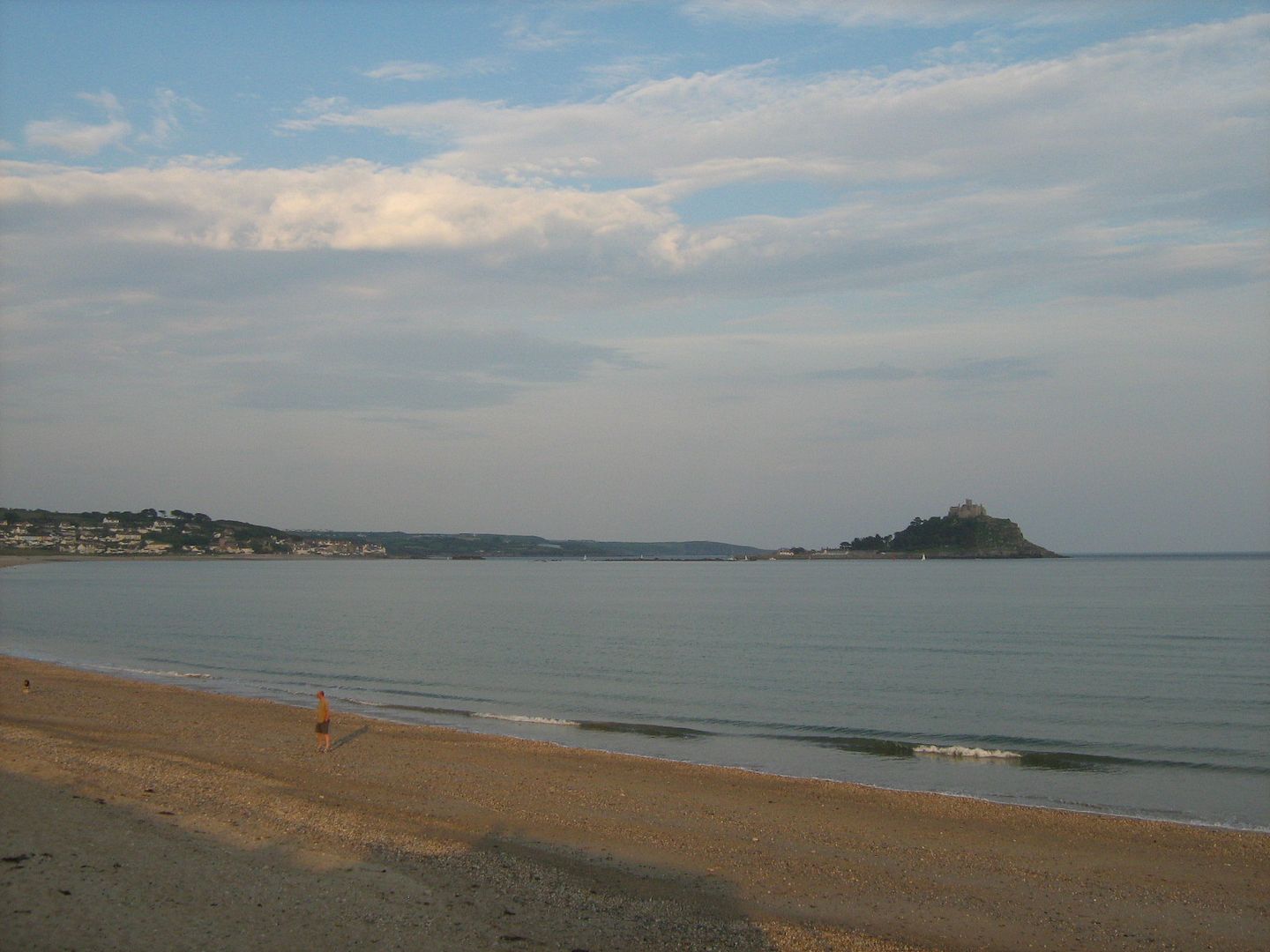 |
| St. Michael's Mount |
The train ride from the end of Cornwall back to London is a very long one,
so we'd booked berths on the Night Riviera train- which has sleeper service
from Cornwall. We liked this idea for
its efficiency. We wouldn't get to see
any scenery- but we also wouldn't waste good sightseeing time in travel. As the train pulled out of Penzance, we crawled
into our cozy bunks on the train, and went to sleep.

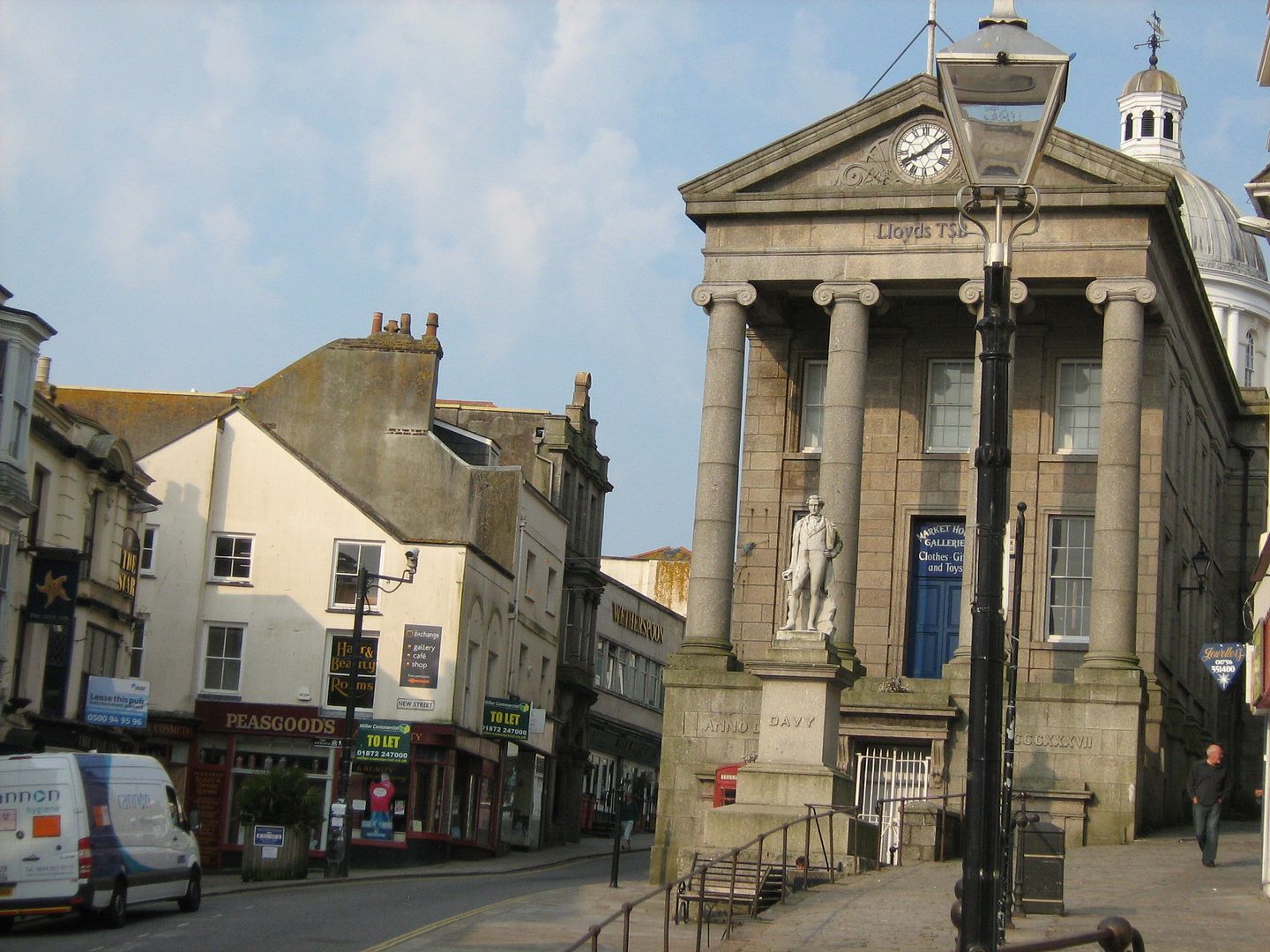
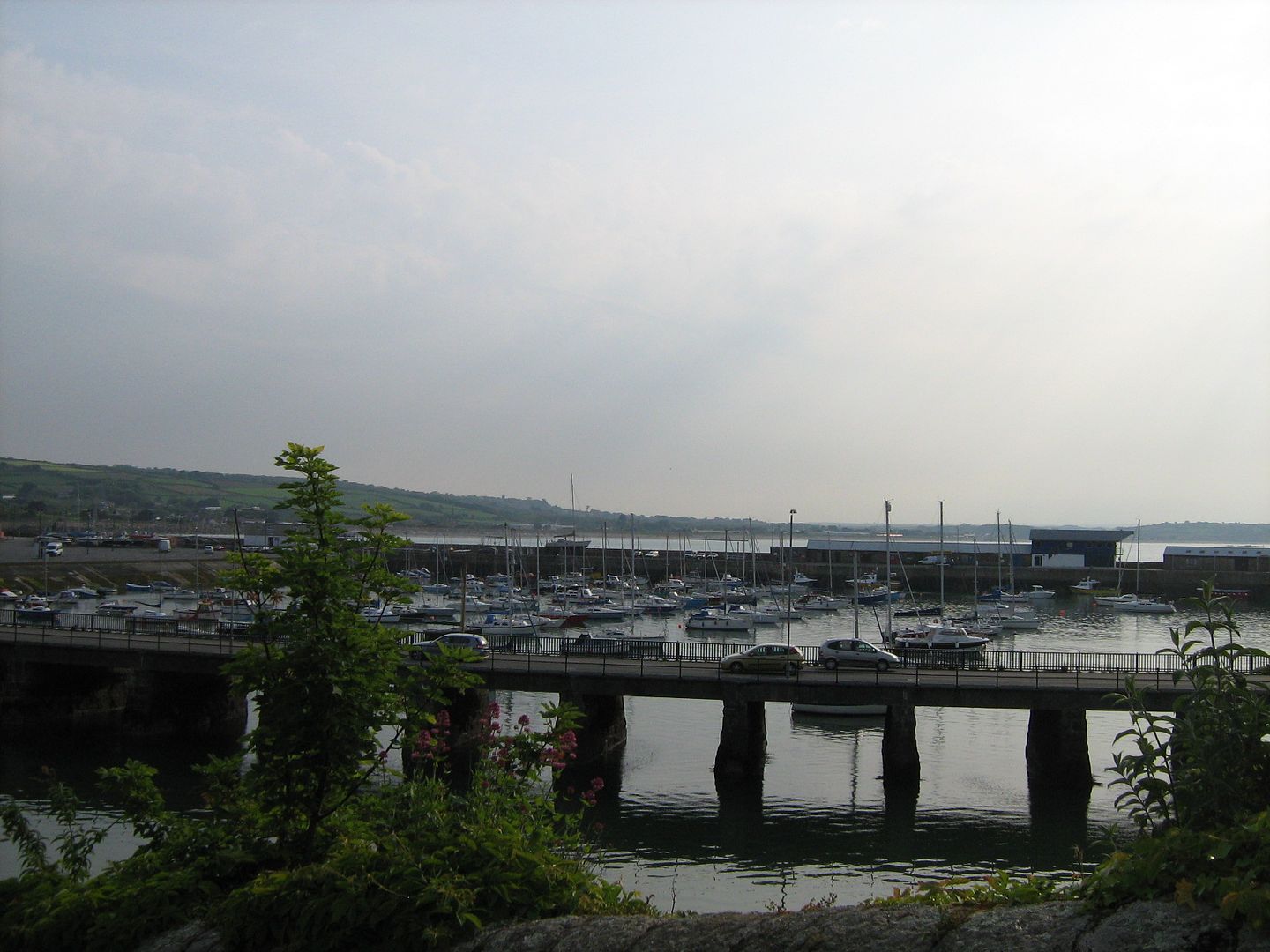
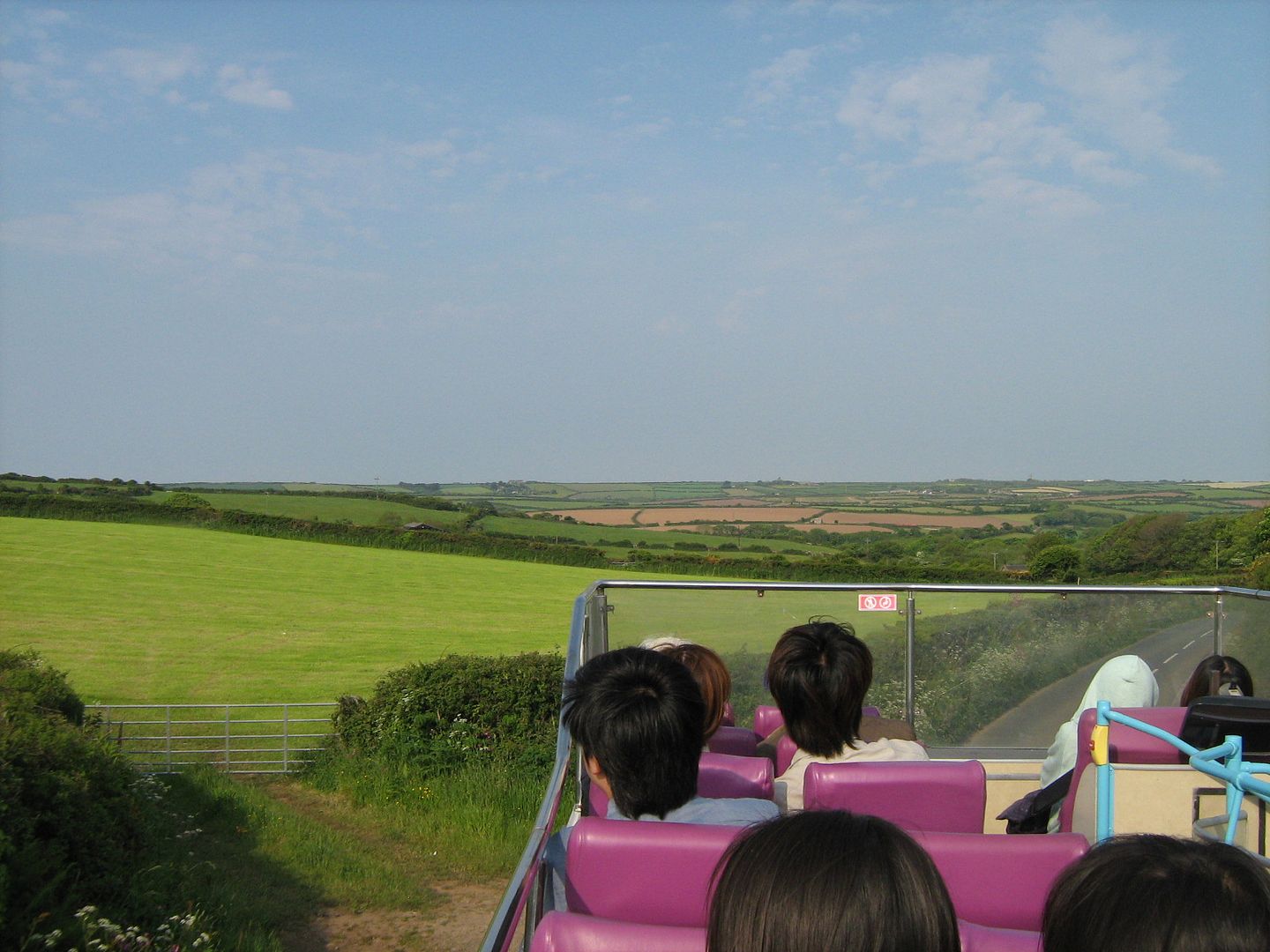
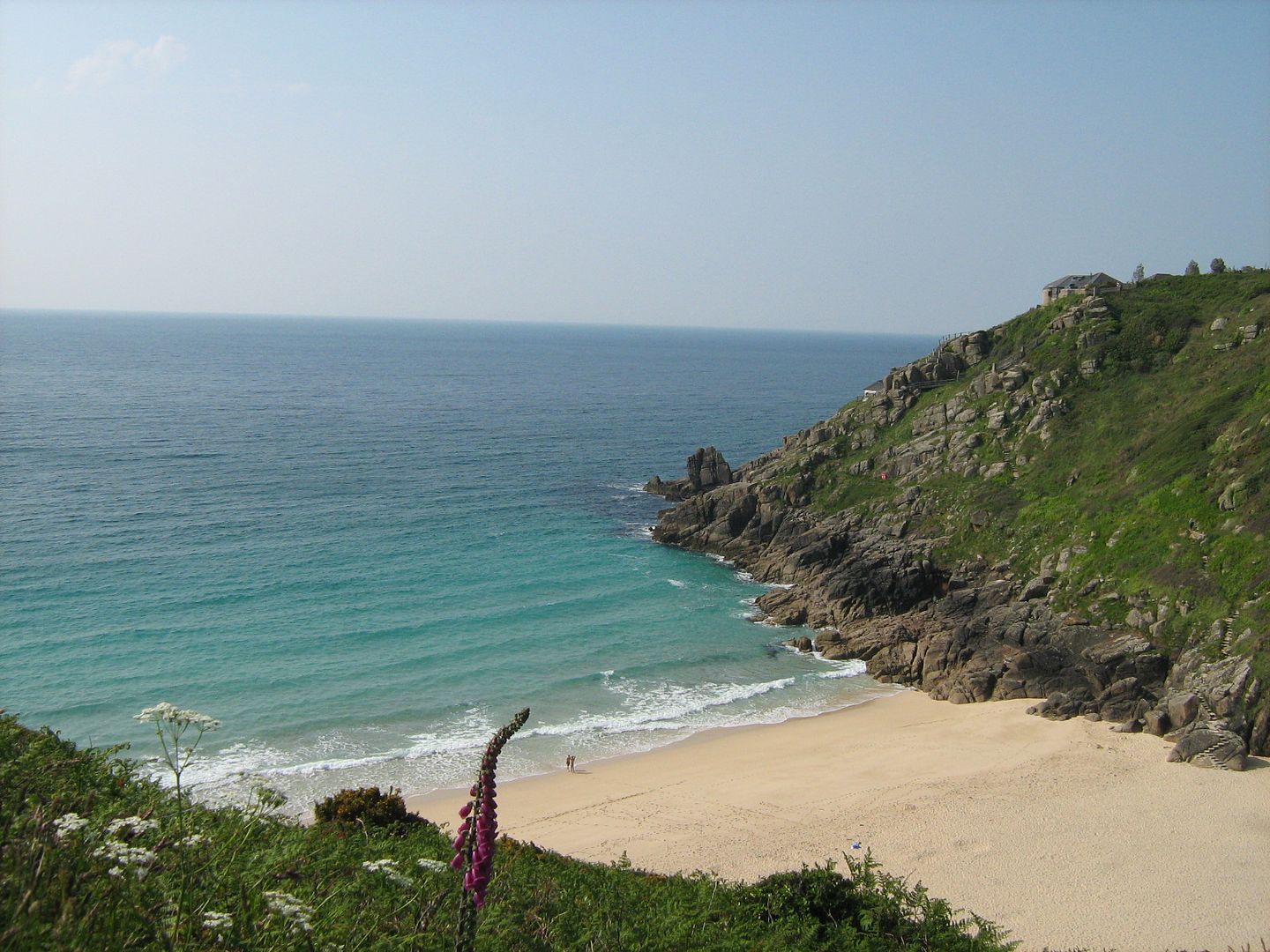


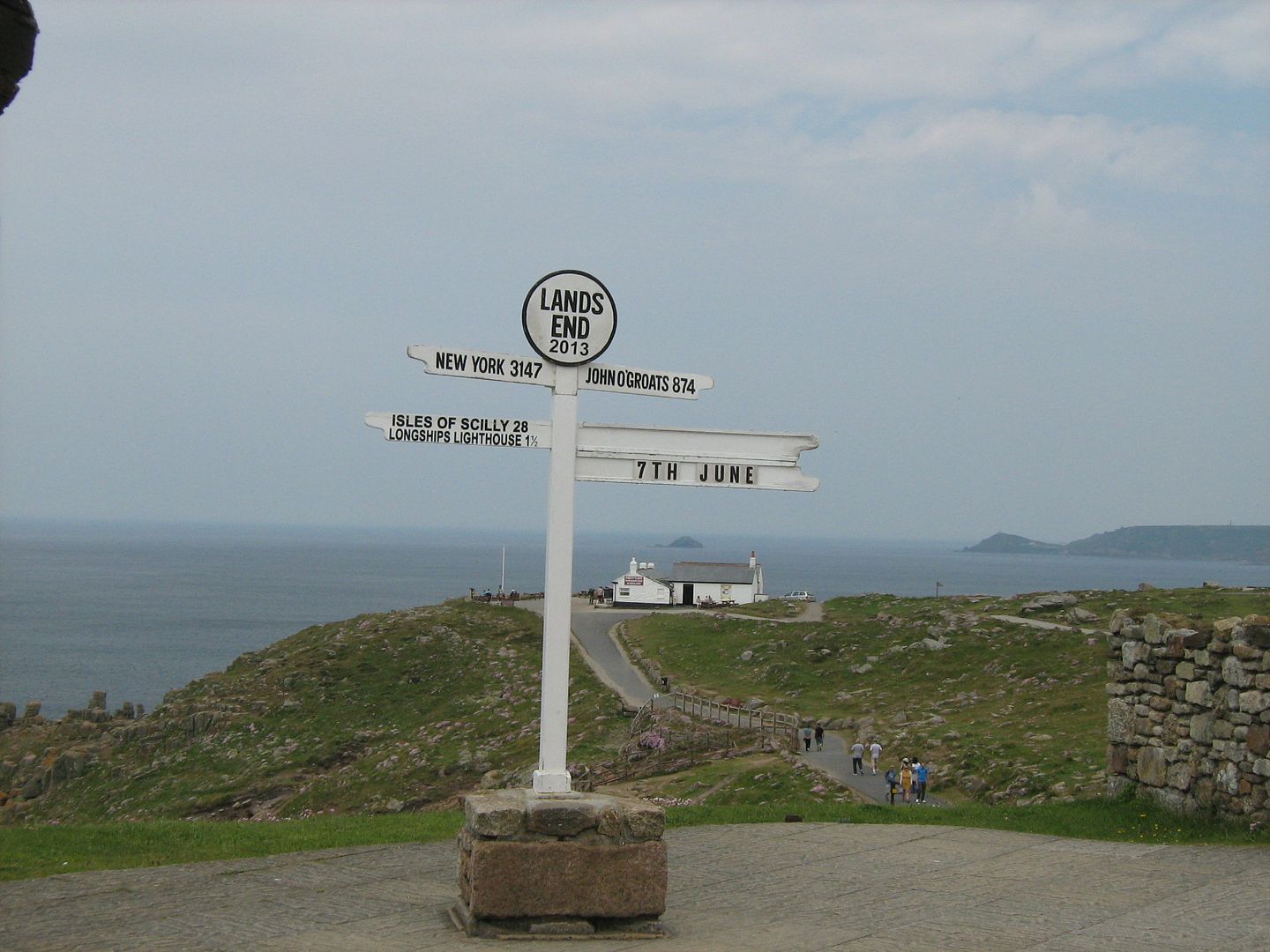
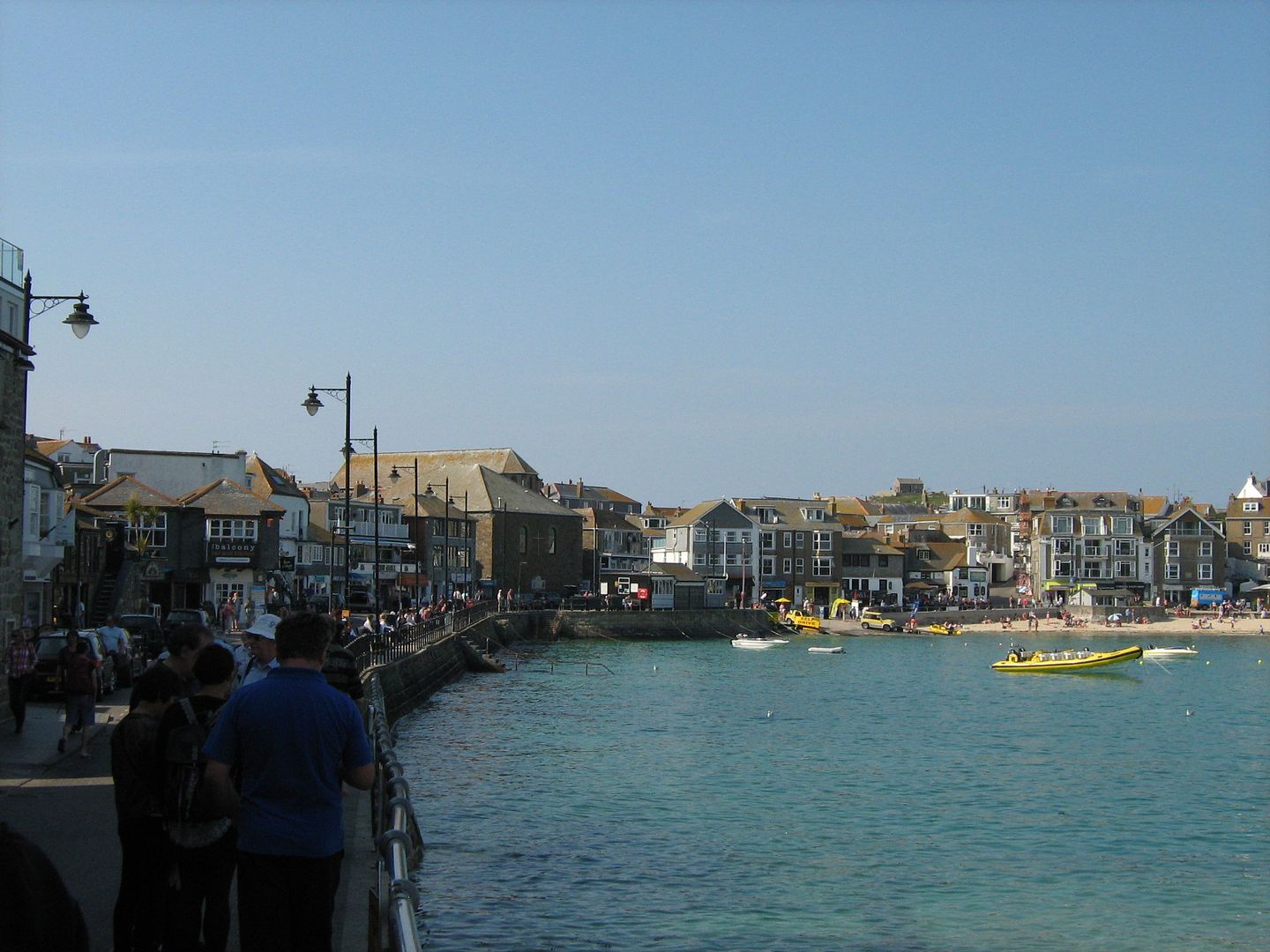

No comments:
Post a Comment